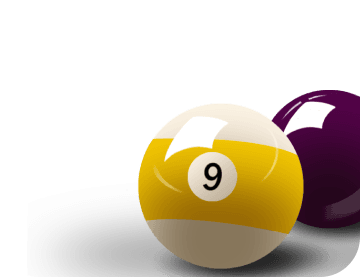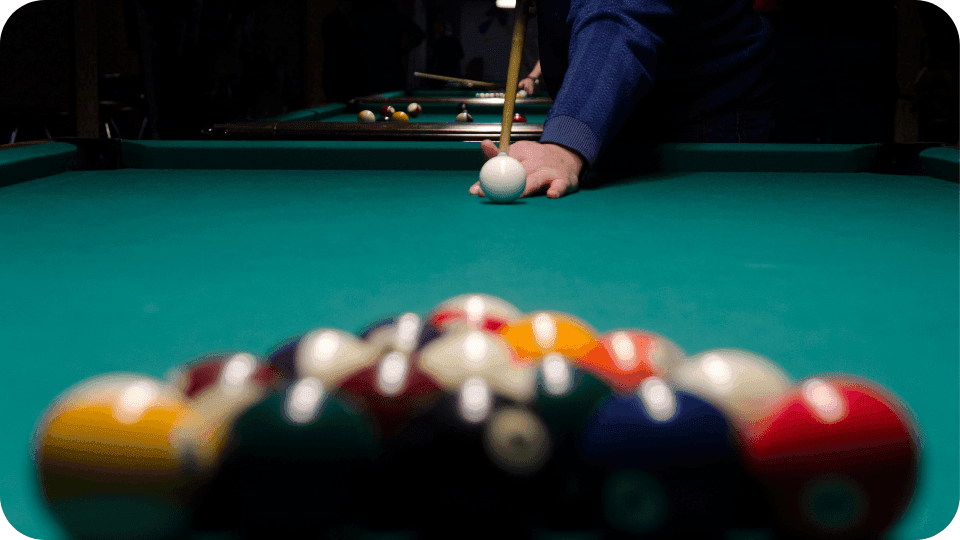How to Select and Purchase a Pool Cue

If you want to enjoy playing billiards, it's essential to have good cues. The balance and design of a cue affect the precision of your strokes. But how do you choose the right cue, and what factors should you consider? Whether you're an individual player or an owner of a club that offers table games, our tips can help you make an informed decision.
Which pool cue to choose: pool or snooker?
Before going into the specific technical tips related to cue length and materials, it is essential to master the basics. The first step is to recognize that cues differ for American billiards (pool) and snooker. Therefore, it is crucial to first determine which type of game you are shopping for accessories.
What are the differences? Which pool cue should I buy for snooker, and which for pool billiards, for example? The differences boil down to three essential elements. These are:
- the number of parts of which the cue is composed - For pool billiards, the cue is typically composed of two parts: a billiard butt and a shaft, which are connected by a metal joint. On the other hand, snooker cues are usually one-piece, resulting in a "stiffer" construction.
- size - Snooker cues have a narrower tip and cap, which also makes them slightly lighter than those for American billiards;
- materials of manufacture - The discrepancies between the two cues are attributed to the ferrule where the tip is mounted. Snooker cues have a metal ferrule, whereas plastic is the preferred material for most pool cues.
Pay attention to these details so you know how to choose a pool cue for your preferred type of game.
See our booking solution for Billiard

Which pool cue to buy - parameters that matter
While all pool cues may appear the same to an untrained eye, there are significant differences between them that extend beyond the factors mentioned earlier. It is crucial to understand what truly matters in selecting a cue.
Fabrication material
Billiard cues are typically crafted from wood, with the choice of wood having a significant impact on the cue's quality, durability, and price. Maple wood is widely regarded as the premium material for cue construction, providing exceptional performance and longevity. Ash wood is also commonly used, offering slightly lower cost options while still maintaining a high level of quality
It is worth noting if a cue is made from a single layer of wood or from multiple layers stacked alternately. High-quality cues, which are recommended for purchase in establishments with pool tables, fall into the latter category. This is because layered cues offer better balance, increased durability, and longevity.
Number of stick parts Which kind of pool cue to choose:
When it comes to choosing a pool cue, one of the decisions to make is whether to go for a one-piece or two-piece model. However, this choice is not solely based on the type of game being played. For instance, when selecting a cue for pool billiards, one can opt for a cue made from a single piece or with a separate handle and tip.
For professional use, a two-piece model is the way to go. This option is not only easier to transport, but it is also less likely to warp when subjected to intensive use. On the other hand, beginners setting up a table at home can opt for a simple one-piece pole, which is more affordable.

Stick type
Apart from regular game cues, there are specialized models available for specific tasks. One such accessory is used for the initial break of balls, while more advanced players may require models for performing jumps. These specialized cues are typically shorter than regular game cues.
How to choose a pool stick?
When considering how to choose a pool cue, it is important to take into account the player's level of experience.
Some key factors to consider :
- does the two-piece cue have a metal joint
- is the tip at the end glued on or screwed in.
Additionally, the type of tip - whether it is soft, medium-hard, or hard - should be chosen based on the player's preferences, as a softer tip makes it easier to give spin but may affect deflection when hitting across the table.
As you can see, selecting a pool cue requires careful consideration. If purchasing cues for a club, it's wise to accumulate a larger collection so that each player can select a model that suits their individual needs.
Start using our system
FOR FREE





